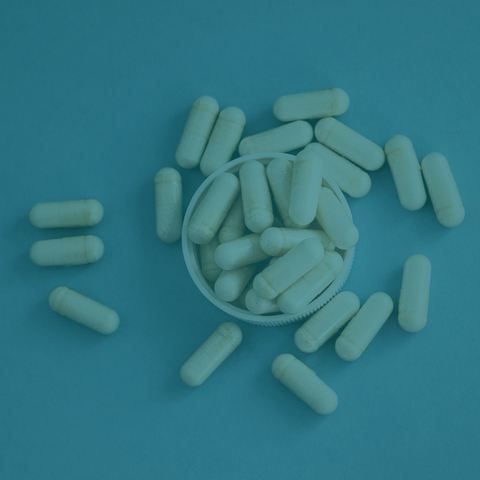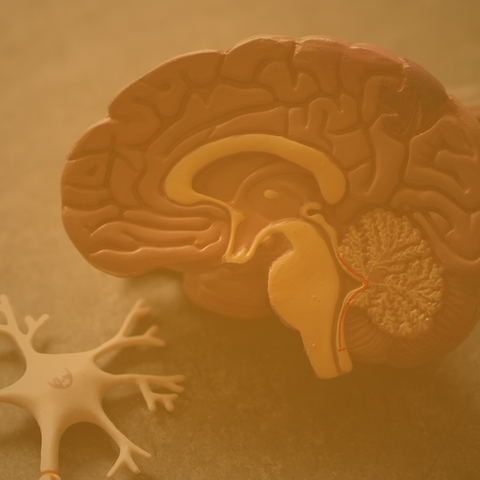
Glutamine is an amino acid in the human body (the most abundant and versatile) [1], and it plays a fundamental role in supporting a healthy immune system, muscle recovery, and maintaining gut health. Although not technically an essential amino acid (one that must be obtained through food because the body can’t make it by itself), it is considered “essential” during times of stress and critical illness [2].
As public interest in fitness, recovery, and overall health has grown in recent decades [3], many people are interested not just in the necessity of glutamine supplementation but in the appropriate timing of this as well.
In this article, we will take a glimpse at the science behind glutamine supplementation, explore its benefits, and provide insights into how timing can enhance its effectiveness. Whether you are an athlete looking to optimize your workout recovery or simply interested in supporting your overall health, understanding the best time to take glutamine could be key to unlocking its full potential.
What is glutamine, and why is it important?
Glutamine is a conditionally essential amino acid, meaning that while the body can typically produce enough to meet its needs, certain circumstances such as intense exercise, stress, or illness may require additional supplementation [2,4,5].
After strenuous exercise, glutamine supplementation can assist in limiting muscle damage from competition [6], and this has been shown in professional athletes [4]. There may be a particular benefit for sporting activities that demand a lot of eccentric actions (where muscle lengthens as it contracts) [4,7].
Immune cells use a significant amount of glutamine as fuel, making it important for maintaining a robust defense against infections. Although most cells in the body function with a constant turnover and/or supply of nutrients, the cells in the immune system often have to operate under nutrient-restricted conditions. Glucose is indeed a vital fuel for cells in the body, but immune system cells such as lymphocytes, neutrophils, and macrophages use glutamine at high rates similar to or greater than glucose when we are experiencing stress or are critically ill [8].
Glutamine is a major nutrient for maintaining the integrity of the intestinal barrier in animals and humans [9]. Depletion of glutamine can result in villus atrophy, decreased expression of tight junction proteins, and increased intestinal permeability [10].
Glutamine is also abundantly found in the central nervous system (CNS), where it participates in a variety of metabolic pathways. Its major role in the brain is that of a precursor of the neurotransmitter amino acids: the excitatory amino acids glutamate and aspartate, and the inhibitory amino acid γ-aminobutyric acid (GABA) [11].
Given these wide-ranging benefits, optimizing the timing of glutamine supplementation can help ensure that you reap the maximum rewards.
How much glutamine to take (dosage) and when?
After strenuous exercise, the muscles are in a state of repair and recovery. Intense physical activity depletes the body’s natural glutamine reserves [12], making post-workout supplementation especially beneficial. After exercise, muscles are stressed and have undergone microscopic damage. An increased glutamine availability post-exercise may contribute to decreased inflammation and health benefits associated with optimal training [4,13]. Glutamine supplementation may also enhance immunocompetence after exercise [12].
Although the study did not provide a specific time of ingestion, an investigation of combat sport athletes in Taiwan found that consuming 0.3 g/kg of body weight of L-glutamine after intensive training for three weeks enhanced mucosal immunity, improved hormonal status and reduced the rate of upper respiratory tract infection, while enhancing feelings of wellness [14].
Elsewhere, in professional basketball players, the consumption of 6 grams per day of L-glutamine for 20 days brought about reduced aspartate transaminase, creatine kinase, and myoglobin in the blood, suggesting that less muscle damage took place compared to the placebo [4].
Factors that influence glutamine supplementation and timing
While the above recommendation is a general guideline, the necessity and optimal time to take glutamine can vary based on several factors.
Activities that demand significant eccentric muscle contractions [15], such as downhill running, squatting, sprinting, and so on, might particularly benefit from glutamine supplementation to reduce the muscle damage, soreness, and/or strength loss caused by these activities [4,7,16].
From a dietary perspective, if you already consume ample protein, you might naturally receive enough glutamine. Moreover, the body can make its own glutamine under normal circumstances [1]. However, during periods of increased physical stress, as previously discussed, additional supplementation can be beneficial.
Practical advice for glutamine supplementation
If you’re considering glutamine supplementation, having appreciated the above, here are some practical tips to help you make the most out of your regimen.
Look for a high-quality product that is, ideally, batch-tested and certified. This is of particular importance if you’re an athlete to ensure the supplement is free from contaminants and/or banned substances [17].
Pay attention to how your body responds to supplementation with glutamine. Although safe and generally well-tolerated [18], if you have any underlying health conditions or are taking other supplements or medications, you are advised to consult with a healthcare professional before adding glutamine to your routine [19].
Conclusion
Glutamine is a versatile amino acid that can support muscle recovery, immune function, and gut health. Whether you’re an athlete pushing the limits of performance or simply someone aiming to maintain overall health, understanding when to take glutamine can make a significant difference. The post-workout window is widely recognized as an optimal time for supplementation, with additional benefits seen from consistent daily dosing in athletes. By aligning your glutamine intake with your body's natural recovery processes and lifestyle needs, you can maximize its benefits and support your health goals effectively.
Looking for a deeper dive into all things glutamine? You can read more about it in our previous blogs in its comparisons to glutamate and glutathione.
References
[1] V. Cruzat, M. Macedo Rogero, K. Noel Keane, R. Curi, P. Newsholme, Glutamine: Metabolism and Immune Function, Supplementation and Clinical Translation, Nutrients 10 (2018) 1564. https://doi.org/10.3390/nu10111564.
[2] R.M. Al Balushi, J. Cohen, M. Banks, J.D. Paratz, The clinical role of glutamine supplementation in patients with multiple trauma: a narrative review, Anaesth Intensive Care 41 (2013) 24–34. https://doi.org/10.1177/0310057X1304100106.
[3] T. Ziegler, Glutamine: From Basic Science to Clinical Applications, Nutrition 12 (1996) S68–S70. https://doi.org/10.1016/S0899-9007(96)00019-6.
[4] A. Córdova-Martínez, A. Caballero-García, H.J. Bello, D. Pérez-Valdecantos, E. Roche, Effect of Glutamine Supplementation on Muscular Damage Biomarkers in Professional Basketball Players, Nutrients 13 (2021) 2073. https://doi.org/10.3390/nu13062073.
[5] A.Y. Coqueiro, M.M. Rogero, J. Tirapegui, Glutamine as an Anti-Fatigue Amino Acid in Sports Nutrition, Nutrients 11 (2019) 863. https://doi.org/10.3390/nu11040863.
[6] G. Li, Z. Li, J. Liu, Amino acids regulating skeletal muscle metabolism: mechanisms of action, physical training dosage recommendations and adverse effects, Nutr Metab (Lond) 21 (2024) 41. https://doi.org/10.1186/s12986-024-00820-0.
[7] B. Street, C. Byrne, R. Eston, Glutamine Supplementation in Recovery From Eccentric Exercise Attenuates Strength Loss and Muscle Soreness, Journal of Exercise Science & Fitness 9 (2011) 116–122. https://doi.org/10.1016/S1728-869X(12)60007-0.
[8] W. Durante, Glutamine Deficiency Promotes Immune and Endothelial Cell Dysfunction in COVID-19, IJMS 24 (2023) 7593. https://doi.org/10.3390/ijms24087593.
[9] S. Perna, T.A. Alalwan, Z. Alaali, T. Alnashaba, C. Gasparri, V. Infantino, L. Hammad, A. Riva, G. Petrangolini, P. Allegrini, M. Rondanelli, The Role of Glutamine in the Complex Interaction between Gut Microbiota and Health: A Narrative Review, IJMS 20 (2019) 5232. https://doi.org/10.3390/ijms20205232.
[10] N. Achamrah, P. Déchelotte, M. Coëffier, Glutamine and the regulation of intestinal permeability: from bench to bedside, Current Opinion in Clinical Nutrition & Metabolic Care 20 (2017) 86–91. https://doi.org/10.1097/MCO.0000000000000339.
[11] J. Albrecht, M. Sidoryk-Węgrzynowicz, M. Zielińska, M. Aschner, Roles of glutamine in neurotransmission, Neuron Glia Biol. 6 (2010) 263–276. https://doi.org/10.1017/S1740925X11000093.
[12] F. Agostini, G. Biolo, Effect of physical activity on glutamine metabolism:, Current Opinion in Clinical Nutrition and Metabolic Care 13 (2010) 58–64. https://doi.org/10.1097/MCO.0b013e328332f946.
[13] C.-C. Lu, C.-Y. Ke, W.-T. Wu, R.-P. Lee, L-Glutamine is better for treatment than prevention in exhaustive exercise, Front. Physiol. 14 (2023) 1172342. https://doi.org/10.3389/fphys.2023.1172342.
[14] T.-L. Lu, A.-C. Zheng, K. Suzuki, C.-C. Lu, C.-Y. Wang, S.-H. Fang, Supplementation of L-glutamine enhanced mucosal immunity and improved hormonal status of combat-sport athletes, Journal of the International Society of Sports Nutrition 21 (2024) 2300259. https://doi.org/10.1080/15502783.2023.2300259.
[15] S. Hody, J.-L. Croisier, T. Bury, B. Rogister, P. Leprince, Eccentric Muscle Contractions: Risks and Benefits, Front. Physiol. 10 (2019) 536. https://doi.org/10.3389/fphys.2019.00536.
[16] F. Rahmani Nia, E. Farzaneh, A. Damirchi, A. Shamsi Majlan, Effect of L-glutamine supplementation on electromyographic activity of the quadriceps muscle injured by eccentric exercise, Iran J Basic Med Sci 16 (2013) 808–812.
[17] S.H. Backhouse, A Behaviourally Informed Approach to Reducing the Risk of Inadvertent Anti-doping Rule Violations from Supplement Use, Sports Med 53 (2023) 67–84. https://doi.org/10.1007/s40279-023-01933-x.
[18] H.B. Ogden, R.B. Child, J.L. Fallowfield, S.K. Delves, C.S. Westwood, A. Millyard, J.D. Layden, Gastrointestinal Tolerance of Low, Medium and High Dose Acute Oral l-Glutamine Supplementation in Healthy Adults: A Pilot Study, Nutrients 12 (2020) 2953. https://doi.org/10.3390/nu12102953.
[19] P.J. Garlick, Assessment of the Safety of Glutamine and Other Amino Acids, The Journal of Nutrition 131 (2001) 2556S-2561S. https://doi.org/10.1093/jn/131.9.2556S.






Comments (0)
There are no comments for this article. Be the first one to leave a message!